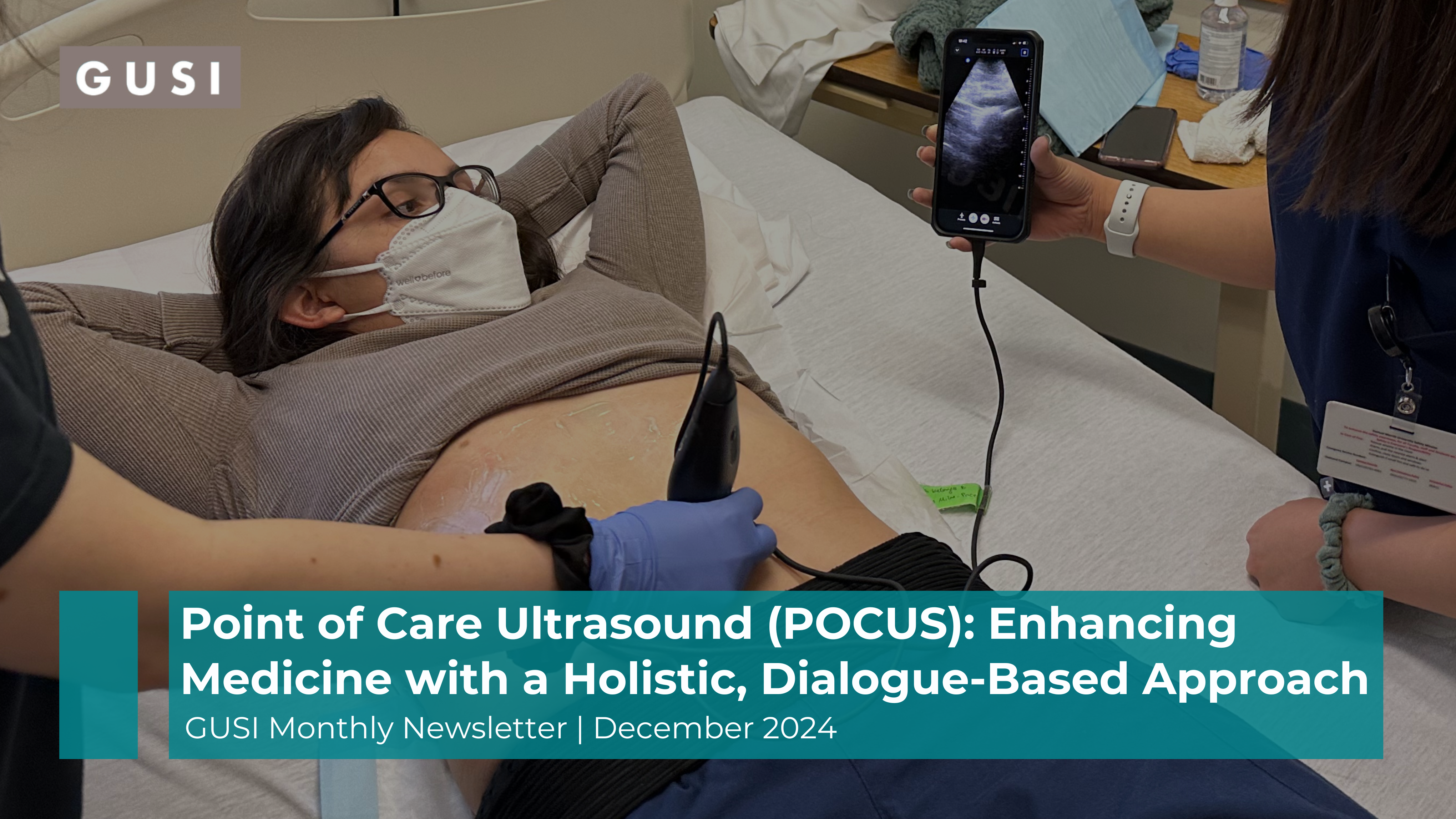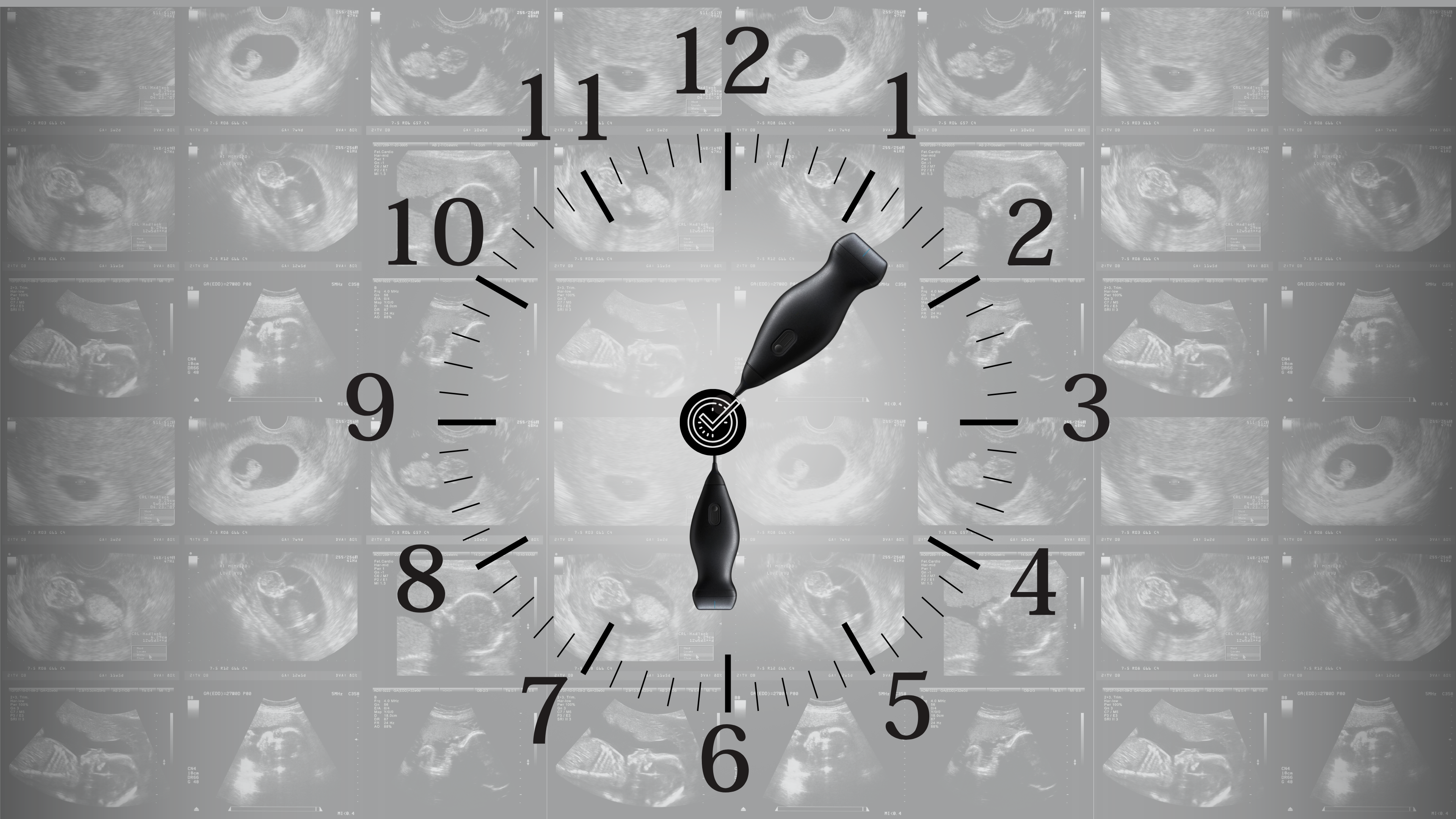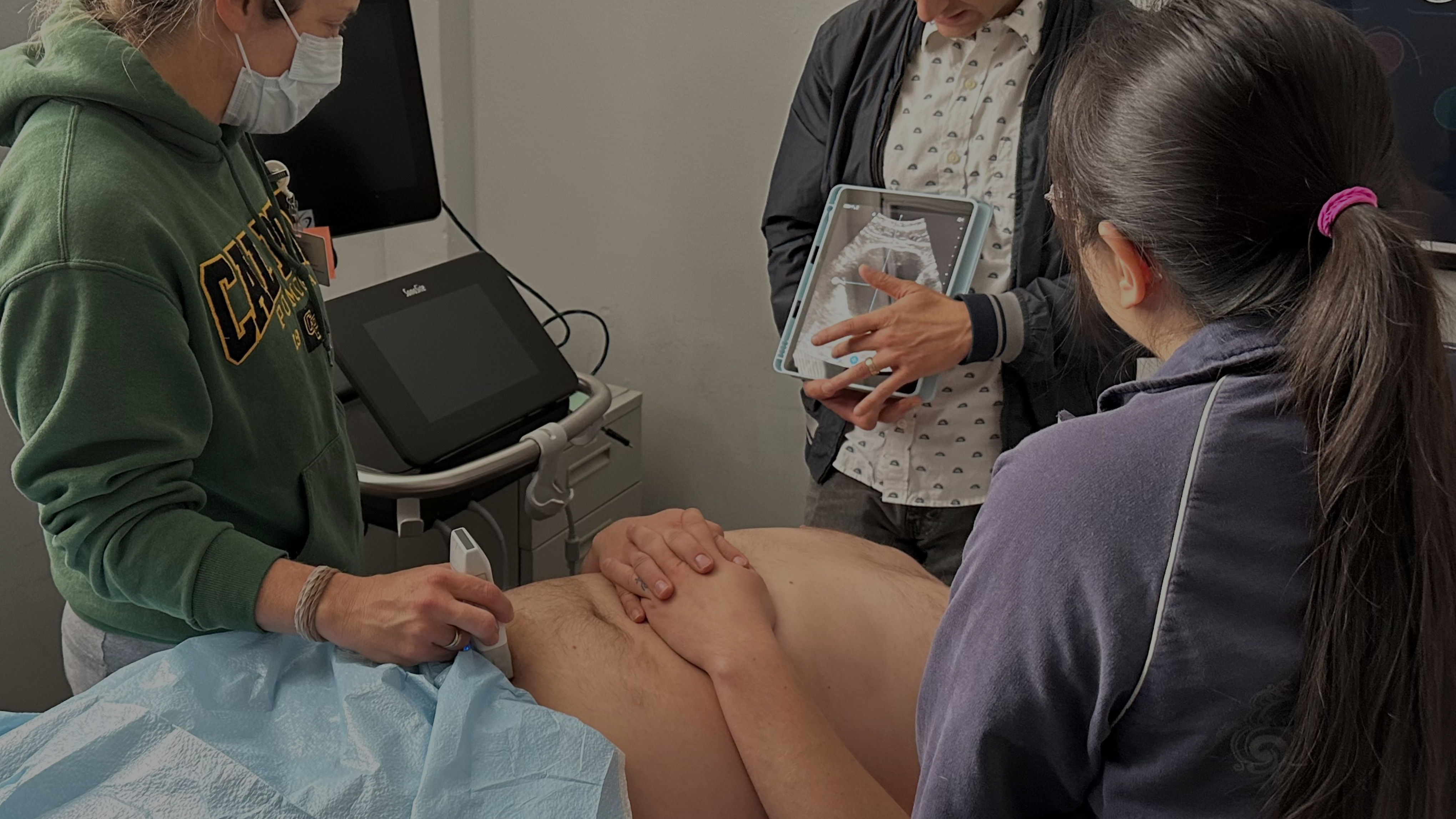News and Information, Newsletters
Point of Care Ultrasound (POCUS): Enhancing Medicine with a Holistic, Dialogue-Based Approach | Dec 2024 Newsletter

As modern medicine advances, technology increasingly takes center stage in patient care. Although diagnostic technologies have significantly enhanced clinical results, there is growing fear that these technological advancements might lessen the human element of patient interactions. Point of Care Ultrasound (POCUS) offers a distinctive solution, blending sophisticated technology with a deeply human approach to healthcare. POCUS enables physicians to engage with their patients meaningfully, creating a dynamic, real-time dialogue that enhances both diagnosis and the physician-patient relationship.

POCUS: A Real-Time, Interactive Examination
The capacity of POCUS to offer interactive, real-time insights into the body’s interior processes is one of its main benefits over conventional imaging. POCUS enables clinicians to see and react to changes and movements in the body in real time, whereas other imaging methods such as Xrays create static pictures. This approach transforms the examination into an ongoing dialogue between the clinician and the patient, allowing immediate adjustments and personalized care. One example of this dynamic interaction is in cardiac imaging, where the physician and patient can witness the functioning of the heart first hand and foster a deeper connection.
The Challenge of Efficiency in Modern Healthcare
The emphasis on efficiency and speed in today’s healthcare system might unintentionally obscure the value of developing deep connections between doctors and patients. Physicians have little time for introspection and in-depth examination in an economic pressure-driven system, which might result in hasty conclusions that can also have a detrimental effect on trust within the doctor-patient relationship. However, POCUS can stand as an exception. Despite being a quick and accessible diagnostic tool, it allows for flexibility and follow-up, enabling physicians to revisit cases over time. This capacity to take the necessary time for attentive observation can be quite important, especially in less urgent circumstances, as it preserves the chance for a comprehensive, patient-centered approach.
Resisting the Trend Toward Mechanized Medicine
The current emphasis on cost-effective healthcare has led to a more algorithmic approach to patient care, where protocols and standard procedures dominate. Consistency is ensured by this method, but doctors and clinicians are frequently reduced to technicians who adhere to predetermined guidelines. This trend can devalue the physician’s expertise and personal judgment. POCUS, however, remains a highly personal and flexible tool. Ultrasound requires individual and highly contextual interpretation, offering clinicians the opportunity to combine the clinical context of a patient’s presentation to better understand the clinical significance of a POCUS scan. Each examination is uniquely tailored to the patient’s clinical context which arguably resists the mechanization of healthcare.
 The Significance of Relationship in Patient Care
The Significance of Relationship in Patient Care
A depersonalized approach to medicine has resulted from the drive for efficiency, treating patients more like data points than distinct individuals. Other imaging modalities in radiology, which unintentionally distance the physician from the patient, can further exacerbate this detachment. On the other hand, POCUS enables a far more personal exchange. By performing the ultrasound in real time, the clinician remains closely involved with the patient throughout the examination, engaging in a direct, ongoing dialogue. This real-time interaction fosters trust, and promotes the patient being a more active participant in their care, rather than feeling like just another case to be processed.
POCUS: A Model for Human-Centered Medicine
Ultimately, POCUS represents a valuable opportunity to bridge the gap between high-tech diagnostics and the essential human aspects of healthcare. It provides a way for physicians to interact with their patients in a more personalized manner, using real-time data to guide their decisions while maintaining the emotional connection that is so important in effective care. This dynamic examination process allows for a deeper understanding of the patient’s condition, especially when compared to more static imaging technologies.
By fostering real-time dialogue with the patient, POCUS encourages a holistic approach to medicine, where technology is used to enhance, rather than replace, the personal relationship between physician and patient. This interactive model challenges the depersonalization of healthcare, emphasizing the value of empathy, communication, and the clinician’s judgment.
POCUS should be viewed as more than just a diagnostic tool; it is a method that reinforces the human element of care in an increasingly mechanized medical system. By combining technical knowledge with intuition and interpersonal connection, POCUS provides a framework for healthcare that values both clinical expertise and the physician-patient relationship. It stands as a model for future medical practice, one that champions patient-centered care and resists the trend toward efficiency at the expense of humanity.
Acknowledgment
This blog was inspired by the journal article “Medicine and the Holistic Understanding of the Human Being: Ultrasound Examination as Dialog” by Maio G., which explores the humanistic and relational aspects of ultrasound in medicine.
Maio G. Medicine and the holistic understanding of the human being: ultrasound examination as dialog. Ultraschall Med. 2014 Apr;35(2):98-107. doi: 10.1055/s-0034-1366182. Epub 2014 Apr 11. PMID: 24729423.
